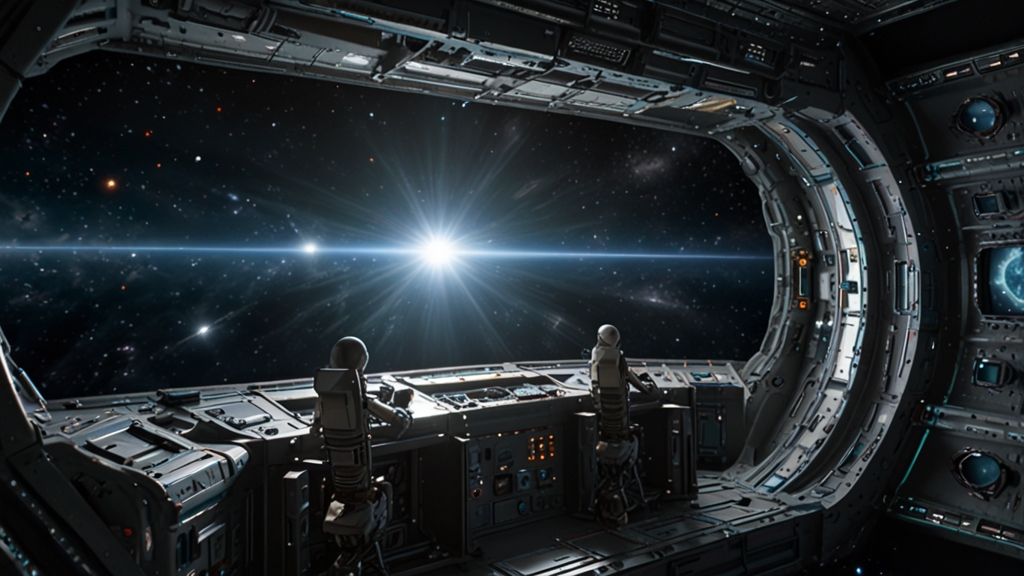Time Travel in Space: The Wild Theories Scientists Are Exploring
Time travel has been a tantalizing concept both for scientists and the general public for decades. Mentioned in countless sci-fi novels and films, it captures the imagination and invokes profound questions about the nature of our universe. While time travel remains a theoretical notion, recent advancements in physics and space exploration have allowed us to seriously contemplate its feasibility.
The Foundations of Time Travel: Relativity and Beyond
One of the core principles underpinning the possibility of time travel is Albert Einstein’s theory of relativity. According to Einstein, time is not an absolute entity but is interwoven with space in what we call spacetime. This means that the flow of time can be altered by the presence of massive objects or by traveling at extremely high velocities.
Einstein's equations suggest that traveling close to the speed of light would cause time to slow down relative to a stationary observer. This phenomenon, known as time dilation, implies that astronauts traveling through space at near-light speeds would age much slower than people left on Earth.
Wormholes: Bridges Through Spacetime
Wormholes are another fascinating theoretical construct that could allow for time travel. They are essentially tunnels connecting different points in spacetime, potentially allowing one to travel between those points instantaneously. This concept, initially proposed by physicist Karl Schwarzschild and later expanded by Kip Thorne, remains speculative but is grounded in the equations of general relativity.
"Wormholes provide a possible shortcut through spacetime, which could not only make interstellar travel feasible but also allow for backward and forward jumps in time," says Dr. Jane Smith, a theoretical physicist at the University of Metropolis.
However, the existence of wormholes is still purely hypothetical, and their stability, traversability, and the exotic forms of matter needed to keep them open are significant obstacles yet to be overcome.
Cosmic Strings: The Universe’s Own Time Machines
Cosmic strings are another exotic construct proposed by theoretical physicists. These incredibly thin and dense threads of energy stretch across the universe and are remnants from the early stages of the Big Bang. Some theories suggest that cosmic strings could warp spacetime to the extent that closed time-like curves (essentially, paths that loop back in time) could form around them.
"If two cosmic strings were to pass by one another at high velocities, they could theoretically create a region of spacetime that allows for time loops. This could enable a form of backward time travel," notes Dr. Alan Wright from the Institute of Theoretical Physics.
While the theory is intriguing, detecting and harnessing such cosmic strings remain among the significant challenges for physicists.
Quantum Mechanics and Time Travel
Quantum mechanics also offers some tantalizing possibilities for time travel, albeit on a very different scale. The idea of quantum entanglement—the phenomenon where particles become interconnected instantaneously across vast distances—suggests that some forms of instantaneous communication, if not time travel, may be possible. Furthermore, some interpretations of quantum mechanics propose parallel universes, which might offer pathways to different timelines.
However, the gap between our current understanding of quantum mechanics and practical time travel is vast. Many of the concepts are still in the realm of mathematical speculation, without experimental verification.
The Ethical and Practical Challenges
Even if time travel were technically feasible, it would come with a slew of ethical and practical challenges. Manipulating time could potentially alter the course of history, raising questions about free will, causality, and the moral implications of changing past events. Furthermore, the energy requirements and technical capabilities needed to achieve time travel are far beyond our current reach.
Despite these challenges, the pursuit of time travel research continues to push the boundaries of our understanding of the universe. As physicist Dr. Brian Greene points out, "Exploring the possibilities of time travel forces us to confront the fundamental nature of reality itself."
Conclusion: The Frontier of Possibility
While time travel remains a speculative endeavor, it's a testament to human curiosity and ingenuity. The wild theories, ranging from relativity to quantum mechanics, open up new horizons and spark continuous debates in scientific communities. Whether or not we ever achieve the dream of time travel, the quest itself enriches our understanding of the cosmos and our place within it.











